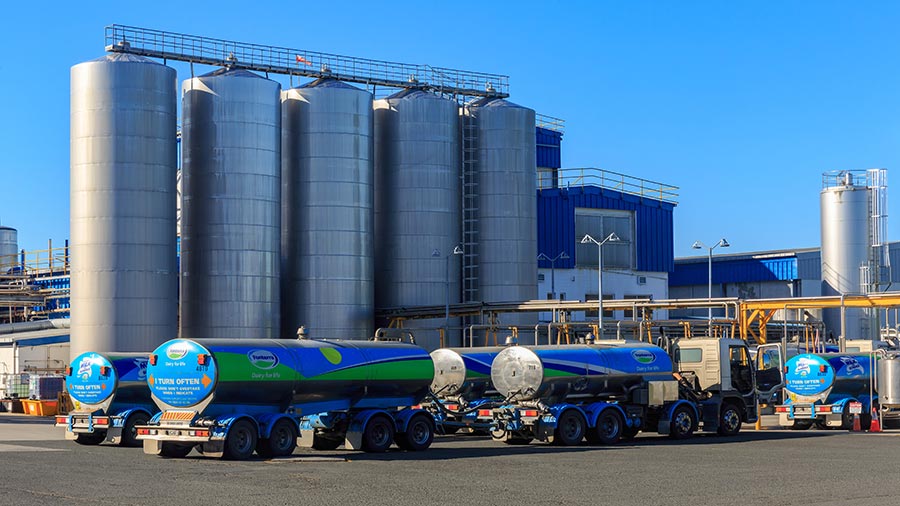UK Dairy Day: Defra boss tells farmers not to fear free trade
 © Michael/AdobeStock
© Michael/AdobeStock A sustainable farming future must go together with food security and the dairy industry should not fear free trade.
That was the message from Defra boss John Powell who was speaking in front of a packed audience at UK Dairy Day’s seminar on sustainable farming.
During the debate, a panel of speakers talked about the future direction of travel and Defra committed to supporting the dairy industry in its endeavours.
See also: Sustainability and farm performance must go hand-in-hand
Mr Powell, head of agricultural sectors, told farmers: “Defra does want to see a thriving, productive and sustainable dairy industry. Sometimes it doesn’t seem like that, but that’s a commitment from the department.”
Free trade: Risk or opportunity?
He also allayed concerns from farmers worried about free-trade deals adding: “Trade is not to be feared. We are a country that produces exceedingly good quality food at exceedingly good standards. There’s growing demand [for it] around the world.”
He said Defra would support dairy companies looking to grow trade overseas. “If that means higher production, if it’s done sustainably, we would support that.
“We need to move away from the protectionist approach we have been used to. The market [must] dictate prices. We are not going to go back to the old way of price setting.
“We can influence, if needs be, through regulation, but the market will need to dictate price through supply and demand.”
Future regulation and sustainability
John Allen, managing partner at Kite Consulting, welcomed such a move but said the key restraint on farms in the future would be access to land, which he dubbed the “licence to operate”.
In Wales, farmers have been capped at applying 170kg of nitrogen/ha under the harsh new all-Wales nitrate vulnerable zone (NVZ) policy.
Other devolved nations are now waiting with bated breath to see whether similar policies are brought in.
To help overcome slurry application changes, Mr Allen suggested farmers needed to move back to “proper regenerative” farming, which he said was circular or mixed farming.
This would allow more feed to be grown for cows and slurry to be used more effectively.
He added: “Productivity from every acre of land or every cow has to be the future.”
The Sustainable Farming Incentive (SFI), the first of three new Environmental Land Management schemes, has now been rolled out.
Mr Powell encouraged more farmers to sign up to the SFI, which he admitted was a work in progress.
“I would encourage you to at least look at what’s on offer. We are going to learn from what’s happening on the ground and we will adapt and evolve; it is not fixed like the old EU schemes,” he assured the audience.
“[But] we can only do that if we are working with farmers on the ground and we see what’s working and what doesn’t work.”
Mr Powell promised Defra would be flexible in the implementation and enforcement of the scheme, adding that farmers would not receive harsh penalties for minor non-conformances.
He said application forms for the SFI have already been made less onerous, with forms prompting users to what is available that would suit their farm, rather than having to trawl through a booklet.
Schemes to support sustainability in dairying
Defra is taking a three-pronged approach to help dairy farmers achieve sustainability through:
- The Environmental Land Management scheme, which looks to improve soil health, for example
- Productivity grants to help the sector innovate
- The animal health and welfare pathway to improve standards and remove endemic diseases.
